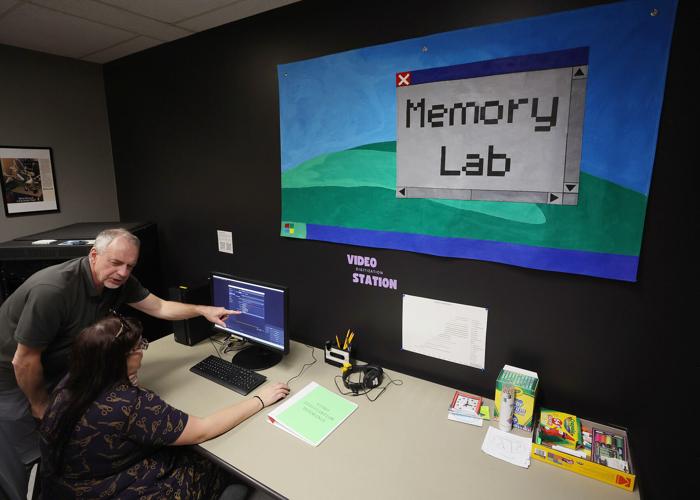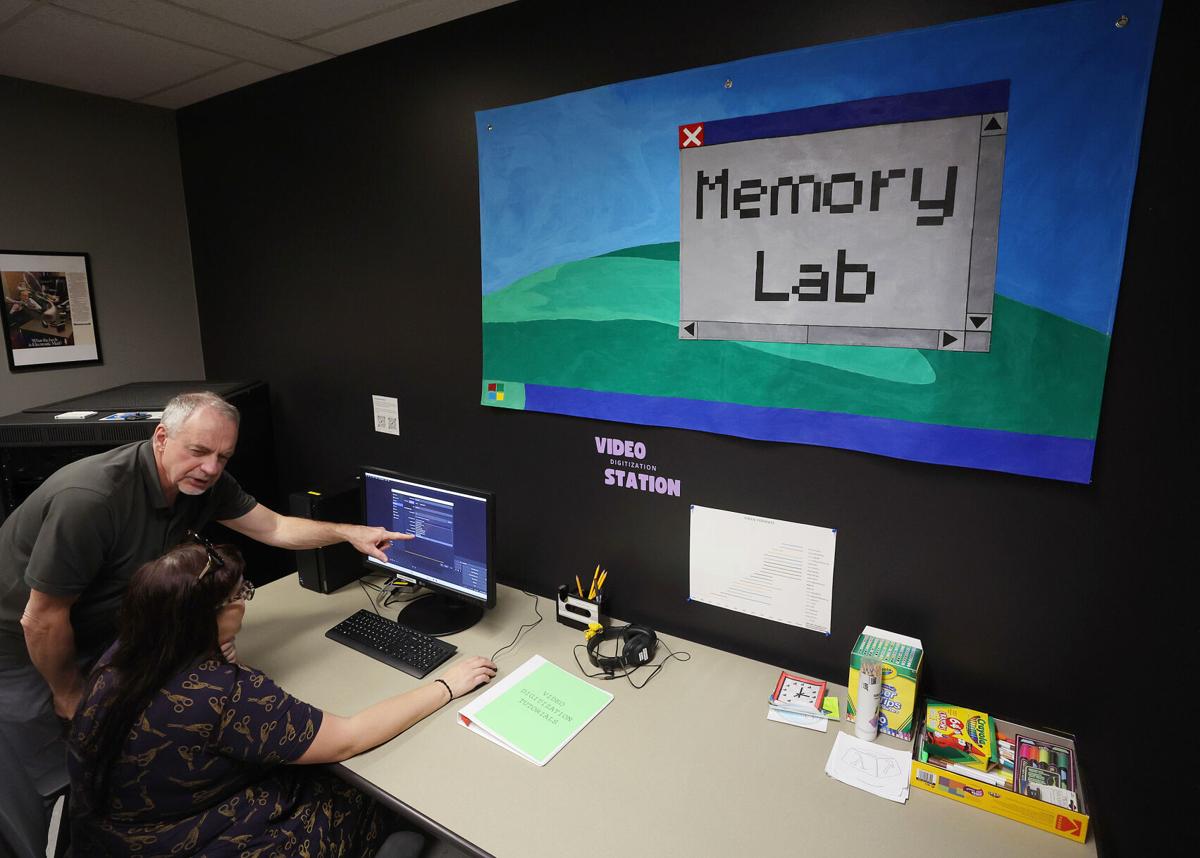I've long had VHS tapes stored away in a box at the top of my closet.
One of those tapes has a video of me singing about dinosaurs during a class performance when I was 4 years old. Another holds the time I brought a family friend's pet snake to preschool and told all my classmates that they didn't have to be scared of the scaly reptile — it was a friendly snake, after all!
But here lies the problem: I don't own a VHS player, so I haven't watched those tapes in at least a decade — and they're undoubtedly collecting dust in my storage room closet.
But now Tucson is home to a free way to digitize those old home movies and photos that you know you cherish but wish you had on your phone or computer.
In late March, the Wildcats Memory Lab made its debut at the University of Arizona's Main Library. It's a free DIY digitization space that provides equipment and guidance to convert those adored photos once taken on a disposable camera into a handy USB flash drive.
"(The Wildcats Memory Lab) was created to address a growing need in our community: many people have meaningful materials stored on outdated formats, but don’t have access to the equipment or knowledge to preserve them," Stacey Erdman, who oversees the lab and is an associate faculty librarian, said in an email.
"Our hope is that the Memory Lab empowers people to preserve their own stories and histories. We’ve all got that old box of family photos or home movies, and now there’s a place where you can learn how to protect them for the future," Erdman says. "Everyone has something worth saving — whether it’s a family photo album, a home movie or an oral history — and we want to give people the tools to keep those memories safe and shareable for future generations."
The project is supported by a grant from the Arizona State Library, Archives & Public Records, in addition to funds from the Institute of Museum and Library Services.
While the Wildcats Memory Lab is said to be the first in the country launched by an academic library, Tucson's lab was inspired by a similar project that began in 2015 at the DC Public Library in Washington, D.C.

Stacey Erdman, left, a digital preservation librarian, shows a photo of her father from the 1970s before demonstrating how to scan a photograph during the grand opening of the new Memory Lab at the University of Arizona.
The lab is open to everyone — UA students, faculty and the community. Erdman hopes that the Tucson lab will help increase digital literacy among community members and strengthen connections between Tucsonans and the UA.
Here's how it works:
First, reserve a spot on the library's website. The Wildcats Memory Lab is home to the third floor of the UA's Main Library.
Inside the lab, you'll find three computer stations — one dedicated to a different type of material, including print, audio and video. You can bring in VHS tapes, DVDs, CDs, cassette tapes, photos, paper documents, vinyl albums and more.
Step-by-step guides are printed in the lab, so you can digitize everything yourself or you can request additional on-site support when reserving your spot. Workshops are also in the works, and you can email LBRY-MemoryLab@arizona.edu with any questions you might have.
"You don’t have to be a tech expert or a professional archivist to use the lab," Erdman says. "It’s a welcoming, do-it-yourself space where people can learn and get support. If you’ve ever wondered how to preserve old tapes, photos or files, the Memory Lab is here to help."
This isn't Erdman's first time working in a space like this. She also works with Digital POWRR, a nationwide project that helps smaller cultural heritage groups create digital preservation programs of their own.
"While POWRR supports building institutional capacity and training staff, the Memory Lab brings that same mission to individuals and communities," Erman says. "By empowering people to preserve their digital lives, we’re helping ensure that more diverse and meaningful stories are safeguarded for the future."






